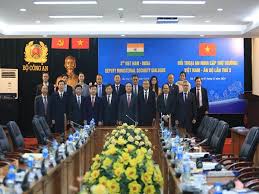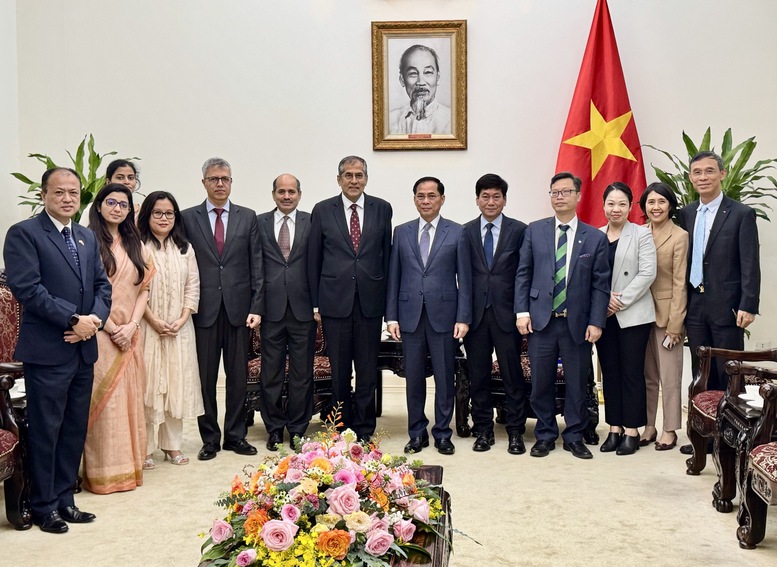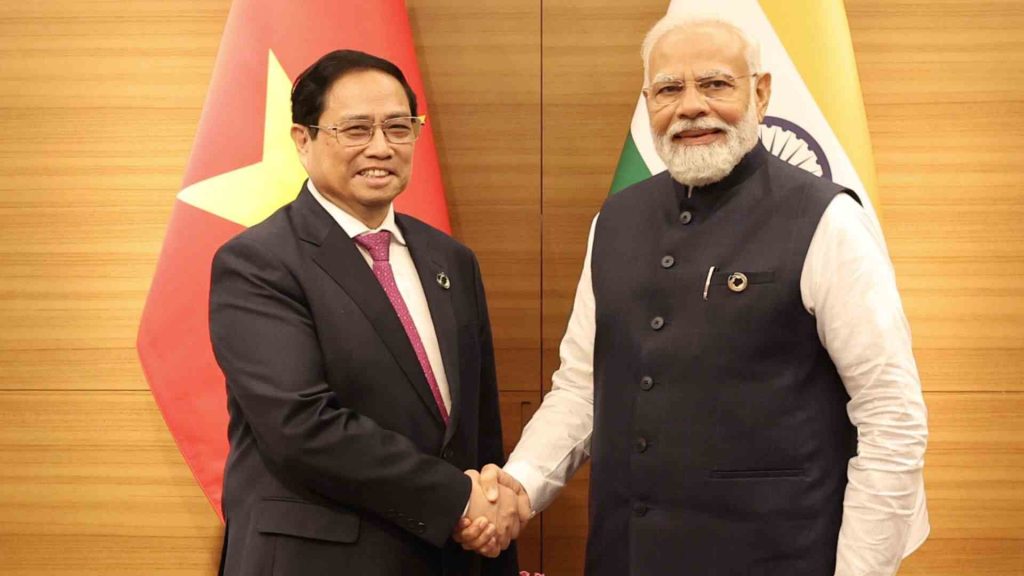
Hanoi hosted the third India-Vietnam Deputy Ministerial-Level Security Dialogue on December 5, marking a significant step forward in the two nations’ robust partnership. The dialogue was co-chaired by Vietnam’s Deputy Minister of Public Security, Pham The Tung, and India’s Deputy National Security Advisor, Pavan Kapoor. The meeting underscored the deepening cooperation between the two countries, particularly in the areas of national security, counterterrorism, and emerging technologies. In his opening remarks, Pham The Tung highlighted the remarkable progress made since Vietnam and India elevated their relationship to a Comprehensive Strategic Partnership in 2016. He emphasized how this partnership has expanded beyond politics and security into diverse fields like culture, technology, and people-to-people exchanges.
The dialogue covered ten key topics, focusing heavily on emerging security challenges and the use of technology to combat transnational crimes. Discussions also delved into global and regional security issues, with both sides reiterating their commitment to practical actions that enhance security and maintain public order.

The two nations reaffirmed their determination to strengthen their bilateral cooperation in capacity-building initiatives, counterterrorism, and cybercrime, while pledging closer collaboration in UN Peacekeeping efforts. Deputy NSA Pavan Kapoor also held high-level meetings with General Luong Tam Quang, Vietnam’s Minister of Public Security, and Bui Thanh Son, the Deputy Prime Minister and Foreign Minister of Vietnam, reflecting the importance both sides attach to their growing security partnership. The dialogue, held biennially since the signing of a 2016 Memorandum of Understanding, will next convene in India.
The December dialogue builds on the strong foundation laid during Vietnamese Prime Minister Pham Minh Chinh’s state visit to India earlier this year, from July 30 to August 1. During the visit, India and Vietnam signed nine landmark agreements covering areas like customs, agriculture, legal cooperation, and culture. Notably, they also adopted a Plan of Action for the Implementation of the Comprehensive Strategic Partnership for 2024–2028, further institutionalizing their collaboration.

Prime Minister Narendra Modi and PM Pham Minh Chinh agreed to strengthen their countries’ ties across sectors, from economic and defence cooperation to cultural and technological exchanges. The leaders also announced plans to increase bilateral trade, currently at $15 billion, while supporting investments in cutting-edge fields like renewable energy, green agriculture, and digital transformation. In defence, both sides commended the progress under the Joint Vision Statement on Defence Partnership towards 2030. They pledged to deepen cooperation through policy dialogue, training, and joint exercises to bolster stability in the Indo-Pacific.
Author Profile
- India Writes Network (www.indiawrites.org) is an emerging think tank and a media-publishing company focused on international affairs & the India Story. Centre for Global India Insights is the research arm of India Writes Network. To subscribe to India and the World, write to editor@indiawrites.org. A venture of TGII Media Private Limited, a leading media, publishing and consultancy company, IWN has carved a niche for balanced and exhaustive reporting and analysis of international affairs. Eminent personalities, politicians, diplomats, authors, strategy gurus and news-makers have contributed to India Writes Network, as also “India and the World,” a magazine focused on global affairs.
Latest entries
 DiplomacyJanuary 5, 2026India walks diplomatic tightrope over US operation in Venezuela
DiplomacyJanuary 5, 2026India walks diplomatic tightrope over US operation in Venezuela India and the WorldNovember 26, 2025G20@20: Africa’s Moment – The Once and Future World Order
India and the WorldNovember 26, 2025G20@20: Africa’s Moment – The Once and Future World Order DiplomacyOctober 4, 2025UNGA Resolution 2758 Must Not Be Distorted, One-China Principle Brooks No Challenge
DiplomacyOctober 4, 2025UNGA Resolution 2758 Must Not Be Distorted, One-China Principle Brooks No Challenge India and the WorldJuly 26, 2025MPs, diplomats laud Operation Sindoor, call for national unity to combat Pakistan-sponsored terror
India and the WorldJuly 26, 2025MPs, diplomats laud Operation Sindoor, call for national unity to combat Pakistan-sponsored terror







